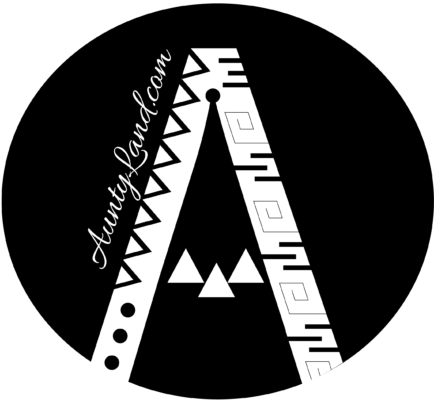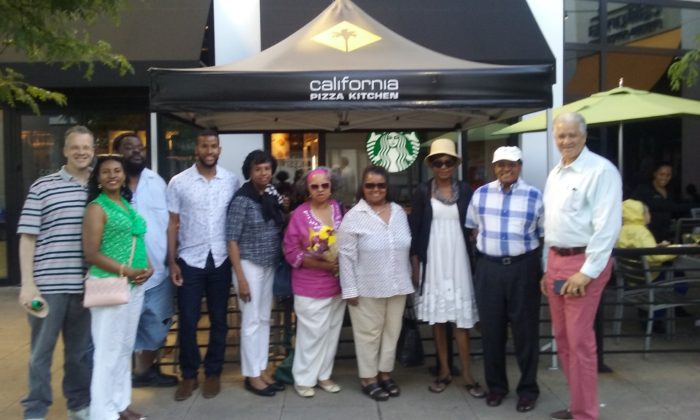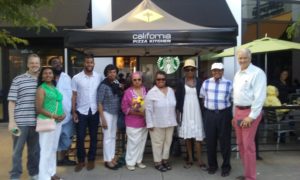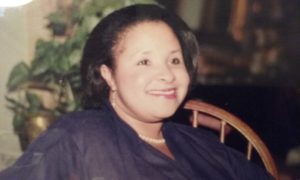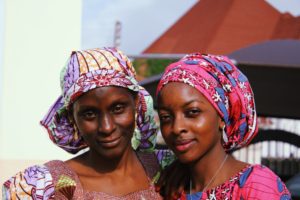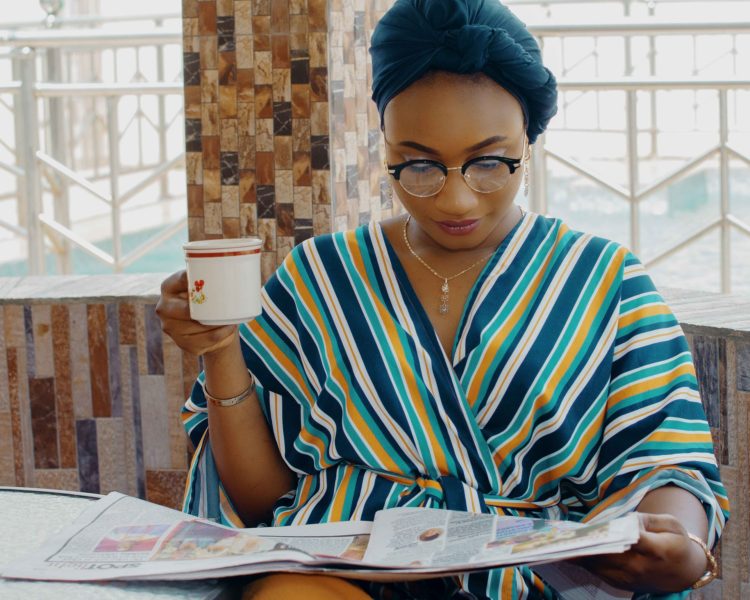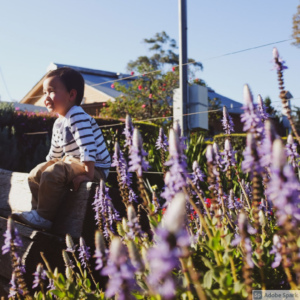
Once upon a time, long ago when milk was delivered in glass bottles and cars had fins, I spent my summers at Aunt Josy’s house in Wyandanch, Long Island. The island was full of farms back then. On the long drive from Brooklyn, riding in my father’s Buick, the mean streets became nice country roads. I saw horse ranches, grazing cows, and family fruit stands along the way. Teams of white, black, and brown day laborers worked together in the fields and loaded up trucks with produce.
Aunt Josy’s house
Aunt Josy and her husband, Henry, whom we called Ah Boppa, owned a small truck farm on three acres. They were my honorary country grandparents. It was tradition for urban children like ‘Brooklyn – Harlem’ me to be sent away to elders in the country. She had a yard and a field with ducks, chickens, a cow, dogs, cats, rabbits, frogs, and butterflies. Some of her animals were given names. Among her beautiful house plants sat a Venus Fly Trap that ate dead flies. There was also a giant floor model radio. Outside I recall peach and apple orchards, rows of berries, greens, beans, and a field of tall grass and corn swaying in the wind.
Grandma’s half-sister
I recently learned that Auntie was my maternal grandmother’s half-sister, or possibly not related at all. They were both Chinese Trinidadians noted for their delicious cooking, musical chatter, and weekly family reunions. The two sisters grew up together in Port-of-Spain and Cedros, Trinidad. They immigrated together to Harlem as young women. They spoke several languages including various Chinese dialects, including Hakka, Spanish-French-Afro patois, and hardcore West Indian-accented English.
One-level house
Auntie had a long, narrow country house that was all on one level. You walked up a few steps and once inside a linoleum-covered floor took you past several small rooms on the right and left until you eventually ended up in a large kitchen. From there you could go outside to a screened back porch. The backyard had a large patio deck that was an outdoor living space that was also a staging area for the garden, farm tools, toys, crafts, clutter, and real people drama. I remember fireflies and mosquitos, and a radio station that played quiet Chinese music in the background. Further, outback there was another small one-room house, a children’s playhouse, and a barn.
Dogs go to heaven
Aunty believed that all animals had souls and that dogs went to heaven. One day, I repeated her story to a nun at St. Matthews and she said that was nonsense. I told Aunty what the nun said and she called them out. ‘Your teachers, especially those Catholic nuns, are ignorant liars!
Life lessons
Aunty was a sweet soul made of equal parts of kindness and wisdom. She rarely got riled up except that one time about the nuns. She was the aunt who taught me life lessons. She taught me how to ‘read people’ with a ‘third eye,’ and to ‘see beyond appearances.’ She believed that there’s good in everyone no matter how scary they may seem.
Scary uncle
For instance, her brother, Uncle Louie was very scary, intense, and serious. He was nicknamed ‘West Indian Einstein’ because he was a genius at math, languages, and inventing and fixing things. He was the family tutor for many subjects. But as kids, we would hide from him because he would scream: ”Hey you, What are you? Are you Non compos mentis or something? Why do you ask dumb questions? And what were dumb questions? “Why is the sky blue?” or “Where was I before I was born?’ But Auntie would assure me that underneath all of that ‘bluster’ was a kind and gentle uncle.
Mixed up
Growing up mixed up in a Chinese, Colored, White, part Buddhist-Catholic-Baptist-Pentecostal, multicultural, multi-ethnic, multi-spiritual family, I always had questions. Aunt Josy was so patient and answered any queries I had. I’m not sure how much education she had. But she often had insightful yet fanciful answers that were flavored with sayings and superstitions.
Superstitions
Being left-handed, aunty considered me her lucky charm. She believed lefties possessed superpowers, especially for magic, healing, and spirituality. Numbers and colors were her special superstitions. “Eight is the luckiest number. So, always find ways to use the number eight and do things in groups of eight. Red is the luckiest color. It brings money, wellness and happiness, So, always add red to your drawings, paintings, and coloring books.”
Occult
Besides superstitions, Aunty believed in the occult and considered palmistry a high art form. She said that lines were written into the human hand for many reasons. She could predict the future and interpret personality characteristics. Just as she would gaze at the sky and see powerful connections between the movements of the moon and stars, she could look at your hand and connect to your future life.
Palmistry
Palmistry was a microcosm of the universe. Hand shapes were classified with elements of earth, fire, air, or water. The hand mounds and plains corresponded with major areas of life. The lines and creases told a story about the future. Aunty always read my palm as we sat listening to old 1940’s records on her Victrola. I loved her old-timey music and world.
My palm
About those palm readings – she read mine a lot. She gently held my left hand closely examining my lifelines. Sometimes she acted as if she were reading some strange book that foretold my life. She’d look at my palm, then look at me, look at my palm again, and take a breath. Sometimes she would do double takes!
Her predictions
One time she predicted that I would live three lives and showed me three intersecting lines in my palm. I recall thinking: ‘Just three lives?” I had already lived ten lives by the time I was an adult! Most times she would say: “You will have a very meaningful life!” or “Hmmm, that’s unique! And my favorite: “Boy, You’ve been here before!” Fortunately, I was still an innocent child and full of grace. My cynical side was still in development. So, all I did was giggle as her fingers traced the lines of my future.
Tea leaves
She read tea leaves too. Aunty would drop a pinch of Ginseng tea into a cup and pour boiled water over it. After the tea brewed and cooled she drank it. Leaving only a few drops at the bottom of the cup she would turn it over on a saucer. The tea leaves stayed in the cup. Then, she would swirl, roll the cup around and look inside the cup. This was drama. Tea leaves formed letters, numbers, and some clung to the sides of the cup to form shapes. Every detail mattered and symbolized something about the future.
Other realities
Aunty came from a background where she easily mingled with diverse Indigenous and traditional cultures. She acknowledged and took for granted people’s differences, similarities, realities, other realms of being, and beliefs. She was way ahead of Oprah. After we put the music records away Aunty took me by the hand and led me through the kitchen, and out to the backyard.
Staying up late
As a child, my favorite thing was staying up late with Aunty after everyone went to sleep and the world was quiet. The night air was warm and sweet, smelling of blossoms and Christmas trees. I recall gentle breezes and skies full of stars! Fireflies hovered, bobbed, and blinked above the grass. There was a stillness, a quiet that covered everything. So different from urban night sounds. I imagined soft summer snow. We sat together on that old back porch and enjoyed magical nights so many years ago. As an elder now, I am grateful for those times. She knew and understood that I was a night owl. She even showed me an actual night owl!
‘They’re all asleep’
After a while, she looked at me, and said: “Sidney, everyone in the world is asleep except for you and me.” I looked up at her, she smiled. “Yes,” she said. “They’re all asleep. We’re the only ones in the whole wide world looking at the stars, feeling the wind, witnessing the night world, and talking to each other. All of the animals, all the birds, all the fish underneath the sea, and all the people, even your Mommy, and Daddy are asleep and dreaming now.”
Smiling moon
Holding me close, she said: “We’re the last ones. The last ones in the whole wide world that are still awake.” The Moon, the bright orange summer Moon was large in the sky. “You see? The Moon has come close to kiss the world good night. The whole sleeping world. It’s come to kiss us good night too. The Moon, the smiling ‘Man on the Moon’ filled our sky, and told us it was finally time to sleep.” Aunt Josy picked me up and took me to my room. She tucked me into bed and helped me say my prayers. She kissed me good night on my forehead and went off to her own room. In a little while, in a very little while both she and I joined the Sleeping, Dreaming World.
Sidney Smith, a retired WBAI radio engineer, and Carrier Wave program host said he shared variations of this ‘Aunty’ story with his late-night audience during his 40 years on the air.
